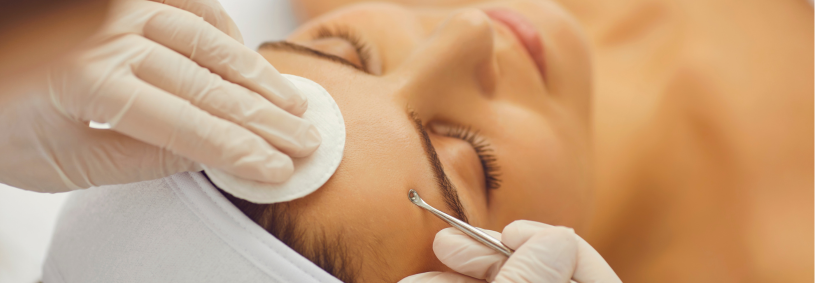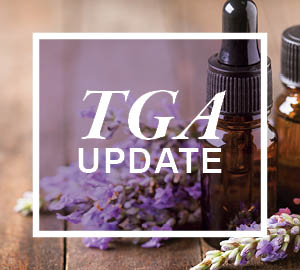Why Standard Acne Treatments Fail And What Works Instead
- Blog
- Why Standard Acne Treatments Fail And What Works Instead

When it comes to acne, the most common treatments offered are still the same ones I was offered back in my early twenties: antibiotics, Roaccutane, or the oral contraceptive pill. These options may offer short-term relief, but they rarely address what’s driving the acne in the first place — especially when breakouts return as soon as treatment stops.
Acne is not just a cosmetic concern. It has negative, and long- term consequences for self-esteem, confidence, and overall quality of life. And while harsh topicals, long-term medication, and generic advice dominate mainstream treatment, there’s another path: personalised, evidence-informed care grounded in functional medicine.
In this approach, we ask: What’s really going on in your body to cause these breakouts — and how can we correct it at the root?
The Power of Personalised Care in Acne
As a naturopath and functional medicine practitioner, I’ve worked with many people struggling with stubborn skin conditions, including acne. And I can say confidently: the key to truly effective treatment is individualisation. That means identifying and addressing the unique drivers behind each person’s skin issues — not just applying a standard protocol.
Most acne I see clinically is hormonally driven, even when it’s not immediately obvious. We’re typically looking at imbalances in oestrogen, progesterone, or androgens like testosterone — and sometimes all three. These hormones interact with key systems in the body, including the liver, digestive tract, and stress response. If any of these systems are overwhelmed or sluggish, hormone metabolism can become impaired, setting the stage for acne to emerge or worsen.
This is where testing comes in — not just to confirm what we suspect, but to reveal what’s hidden below the surface.
Testing: A Window into Your Internal Terrain
I often rely on a few types of tests when managing acne. Most of the important markers can be derived from blood tests and urine tests. Blood Testing
Blood tests give us a snapshot of what’s happening right now. They’re useful for checking nutrient deficiencies, markers of inflammation, liver function, and blood sugar control. They can also tell us about circulating hormone levels. However, hormones in blood can fluctuate depending on where someone is in their cycle, recent stress, and co-occurring illness.
That’s why interpretation matters — especially if someone has symptoms like irregular cycles, mood swings, or adult-onset acne. Looking at blood hormone levels without context can be misleading. We have to know what we’re looking for.
Urine Testing
Dried urine hormone testing (like DUTCH testing) provides a more comprehensive view of how hormones are being metabolised — not just how much is circulating. This can show us whether oestrogen is being broken down safely, whether androgens are being cleared or are building up, and how stress is influencing the hormonal picture.
Urine testing also gives us a glimpse into detoxification pathways — including methylation and oxidative stress — which are often involved in acne that doesn’t respond to basic lifestyle changes.
Together, these tests form a more complete map of what’s happening inside the body and where support is needed.
Common Acne Drivers I See in Clinic
Beyond hormones, several other factors often contribute to acne:
- Constipation and sluggish digestion
When the bowels aren’t moving regularly, hormones that should be excreted can get reabsorbed, disrupting hormone balance and driving breakouts.
- Nutrient deficiencies
Nutrients like vitamin A, zinc, vitamin E, and collagen are essential for skin repair, inflammation regulation, and barrier function.
- Gut microbiome imbalances
A compromised gut can affect systemic inflammation, phase 3 hormone clearance — all of which can influence acne.
- Stress and poor sleep
Elevated stress hormones (like cortisol and local androgens) can directly influence sebum production and immune responses in the skin.
Natural Support Strategies that Actually Work
While the root cause of acne varies person to person, some foundational support strategies tend to benefit most:
- Choose skin care that protects the barrier
Harsh, drying products might feel like they’re working in the short term, but they often damage the skin’s microbiome and make things worse over time. Think gentle, microbiome-friendly cleansers and moisturisers.
- Support hormone clearance
Ensure that systems involved in hormone metabolism — especially the liver and bowels — are working well. That means addressing constipation, reducing alcohol, and possibly including herbs and foods that support liver detoxification.
- Introduce therapeutic nutrients and herbs
- Nutrients like vitamin A, zinc, vitamin C, vitamin E, and collagen support healing and inflammation.
- Herbs like spearmint, saw palmetto, peony, and licorice can modulate androgens or support adrenal resilience, depending on what’s needed.
- Manage stress with intention
Stress reduction isn’t just a luxury — it’s essential. Techniques like mindfulness, yoga, or even daily walks can help modulate the stress response and improve hormone regulation.
Final Thoughts: Healing Acne is an Inside Job
Acne is often seen as a surface issue, but it’s almost always a reflection of something deeper. If you’ve tried everything and your skin still isn’t improving, it may be time to stop guessing and start testing.
Functional testing allows us to uncover the real drivers of your acne — whether hormonal, nutritional, digestive, or stress-related — and tailor your treatment accordingly.
In a world of quick fixes and endless product lines, personalised care can feel radical. But when it comes to acne, it’s also what works.
More about the author

Rebecca Hughes
Rebecca Hughes is a functional medicine practitioner and naturopath specialising in chronic skin conditions. Her approach blends evidence-based testing with holistic, natural interventions to help clients achieve lasting skin health. Rebecca provides professional education for naturopaths and allied health professionals on these topics. She sees patients via telehealth.
Website: https://rebeccahughes.com.au/
Email: hello@naturalskinmedicine.com.au
Facebook: https://www.facebook.com/naturalskinmedicine/
Instagram: @natural_skin_medicine
Other Blog In This Category

Prime Medic Group issued infringement notices for alleged unlawful advertising of weight loss medicines.
